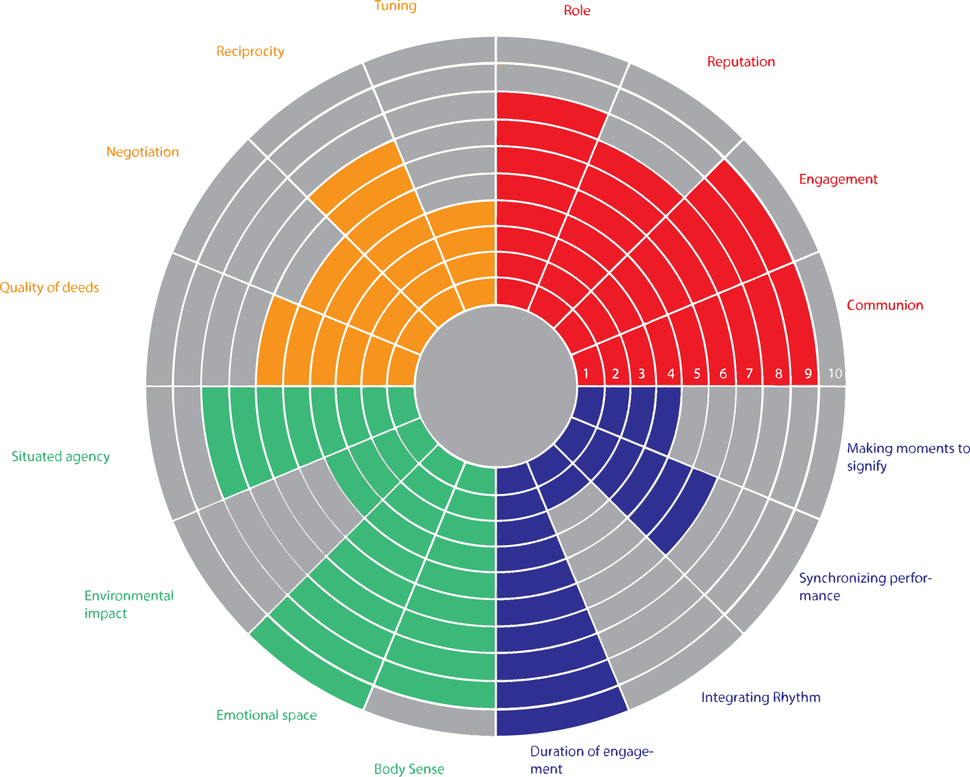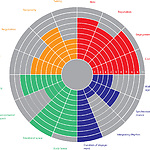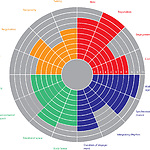2.3. Description of future daily life regarding accommodation.
Now that the present situation has been analyzed, it’s time for the future. The same two types of accommodation will be used as in the previous paragraph, private and tourist accommodation. The future analyses will view the situation differently, what if the goal is partly or fully achieved. Texel is more sustainable and tourism is more spread over the year. Will the needs and presence of Texelaars or tourists change over the years? That’s what this paragraph will explain.
Private accommodation
No matter the future changes that occur in Texel, some values and standards are not going to change; the importance of the role and the reputation of a house owner of the close relationship between the community members are probably not going to be influenced. However, for private accommodation to become more environmental friendly, depends on the owner's ambition and effort, how committed he feels in achieving a specific aim or desired result, so his engagement has grown.
Other time-related values are also going to be stable, since we are talking for permanent situations and facts, especially when we are referring to a family’s micro-world. Then again, influences may occur especially between neighbors: if neighbors adopts a more eco-friendly lifestyle introducing sustainable solutions for their houses as well, and this improves their daily life or affects the environment, other people will also be keen on adopting these changes, which means synchronizing performance will score higher.
Better, more sustainable and eco-friendly accommodation, will also have a high impact on people (physical and emotional situation). Then, the environment impact of the private houses will become less, since sustainable solutions minimize also their environmental footprint. In the future to come, inhabitants will have more control of their actions, since adopting a sustainable lifestyle depends mostly on changing behavior towards energy, waste etc.
For the whole implementation to be successful and turn Texel into a sustainable island though, some balances should also be stable. We shouldn’t change people’s comfort zone; we should convince them that with the same effort they can get better results. They should be convinced that the more they change into their house towards sustainability the more they will get out of it (on a personal or more general level). And the more sustainable practices they adopt, the closer they come to people taking the same actions.
YUTPA Analysis of a homeowner (future)
Tourist accommodation
As long as tourism is going to be one of the main sectors providing income to the inhabitants of Texel, its role and reputation is going to be of a high importance. The owners will always feel committed to their property and the island in general, but the same applies to the tourists as a high percentage of them returns. Making a small prediction, we think that more people will re-visit the island in the future, so the bonding between the locals and those coming periodically will increase.
If changes towards Texel becoming a sustainable island are going to take place, more people should be involved. This means that both the owners of tourist accommodations and those visiting the island will support these changes. Moreover, improving these facilities may also mean that tourism will also change from seasonal to more equally spread around the year. This means integrating rhythm will drop, as tourist won’t act only on one part of the year.
Carry out a strategic plan towards a more sustainable tourist accommodation system also means that those visiting the island are going to be influenced, physically and emotionally. Moreover, those attracted by this new character of the island will also be more aware and active towards environmental friendly solutions, so they can play a key role to the implementation of the overall solution. In the same time, the environmental impact of the subsystem will get smaller, since sustainable solutions will lower its ecological footprint.
If the target group of tourists changes, the quality of the overall facilities and actions concerning tourism will be a little bit higher; meaning that also the owners will have to provide services of a better quality. Still, the different interests between tourists and owners and the exchanging for mutual benefit will stay the same.
YUTPA Analysis tourism accommodations future


